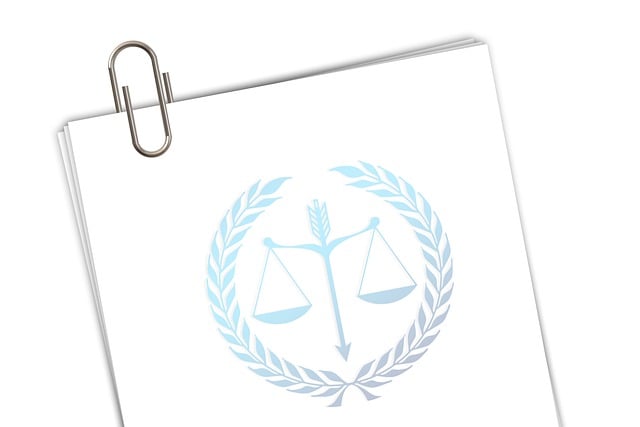Environmental Crime Trials play a crucial role in addressing complex Regulatory Challenges in Merger Agreements, ensuring accountability for environmental law violations. These trials, with their proven success, act as powerful deterrents against pollution, waste management, and habitat destruction. By showcasing legal systems' commitment to sustainability, they encourage corporate entities to prioritize environmental integrity alongside profitability. Despite merger agreements driving business growth, strict legal frameworks, including reporting mandates, compliance monitoring, and swift penalties, maintain environmental standards. High-profile cases like ExxonMobil set precedents, influencing regulatory bodies to strengthen oversight during mergers and acquisitions (M&A) to prevent ecological disasters. To counter sophisticated environmental crimes, regulatory bodies must adapt, enhance due diligence, and collaborate effectively, employing multi-faceted strategies for improved detection and justice.
“Environmental Crime Trials: Uncovering Legal Battles for a Sustainable Future explores the intricate world of legal proceedings fighting ecological offenses. From understanding the mechanics of these trials to analyzing high-profile cases, this article delves into the key roles played by legal frameworks and corporate responsibility. We uncover regulatory challenges within merger agreements, highlighting their impact on sustainability. Additionally, we provide insights on future directions, emphasizing enhanced measures to combat environmental crimes effectively.”
- Understanding Environmental Crime Trials: A Glimpse into Legal Proceedings
- Regulatory Challenges in Merger Agreements: Implications for Corporate Sustainability
- The Role of Legal Frameworks in Preventing and Punishing Environmental Offenses
- Case Studies: High-Profile Environmental Crime Trials and Their Impact
- Future Directions: Enhancing Regulatory Measures to Combat Environmental Crimes
Understanding Environmental Crime Trials: A Glimpse into Legal Proceedings

Environmental Crime Trials offer a unique perspective on legal proceedings, particularly when navigating complex regulatory challenges in Merger Agreements. As corporate and individual clients seek to expand their operations, these trials play a pivotal role in holding accountable those who violate environmental laws. The unprecedented track record of successful prosecutions serves as a deterrent, underscoring the importance of adherence to ecological regulations.
Through these trials, legal systems demonstrate their ability to tackle environmental misconduct, from pollution and waste management to habitat destruction. Winning challenging defense verdicts not only upholds the rule of law but also sends a powerful message to businesses and individuals alike: environmental integrity is non-negotiable. This ensures that corporate entities operate responsibly, prioritizing sustainability alongside profit.
Regulatory Challenges in Merger Agreements: Implications for Corporate Sustainability

Merger agreements often present significant regulatory challenges, particularly when it comes to ensuring corporate sustainability and environmental accountability. As businesses expand through mergers, they can inadvertently introduce complex legal landscapes that hinder their ability to achieve extraordinary results in terms of sustainable practices. Regulatory bodies across the country are grappling with the task of keeping pace with these transactions while maintaining robust standards for environmental protection.
The intricacies of merger agreements can lead to loopholes or weaknesses in environmental regulations, allowing for potential white collar defense strategies that may delay or weaken enforcement. This creates a challenge for regulators and environmental advocates who strive to hold companies accountable for their actions—or inactions—regarding sustainability. Effectively navigating these challenges requires careful consideration of the cumulative environmental impact of merged entities and robust legal frameworks designed to prevent environmental crimes.
The Role of Legal Frameworks in Preventing and Punishing Environmental Offenses

The legal frameworks play a pivotal role in preventing and punishing environmental offenses. Robust regulations, enforced by dedicated agencies, serve as deterrents by setting clear standards and guidelines for businesses and individuals to uphold. These frameworks often include provisions that mandate reporting, disclosure, and compliance monitoring, ensuring that potential violators are aware of their responsibilities. Effective legal structures also facilitate swift action against offenders through administrative penalties and civil lawsuits, aiming to make polluters accountable.
Moreover, the success of environmental crime trials relies on strong legislative backing. Strict liability laws, for instance, remove the need to prove intent, making it easier to prosecute offenders. Regulatory challenges in merger agreements are often addressed within these legal frameworks, ensuring that corporate mergers or acquisitions do not compromise environmental standards. White-collar defense strategies may attempt to exploit such complexities, but robust legislation aims to counter these efforts through clear guidelines and transparent procedures, ultimately safeguarding the environment and ensuring justice through jury trials.
Case Studies: High-Profile Environmental Crime Trials and Their Impact

High-profile environmental crime trials have served as powerful tools for holding corporations accountable and setting precedents in combating ecological transgressions. One notable example is the case against ExxonMobil, where the company faced numerous charges related to oil spills and environmental degradation. This trial not only resulted in substantial fines but also brought attention to the regulatory challenges within merger agreements, underscoring the need for stricter oversight during corporate consolidations that may impact environmental standards.
These trials have had a significant impact on shaping legal strategies for both white-collar and economic crimes. They highlight the importance of investigating corporate conduct and holding individuals accountable within organizations. As seen in recent cases, successful prosecutions not only lead to financial penalties but also prompt regulatory bodies to strengthen their oversight, ensuring that future mergers and acquisitions consider environmental sustainability as a critical factor, thereby preventing potential ecological disasters.
Future Directions: Enhancing Regulatory Measures to Combat Environmental Crimes

To enhance the fight against environmental crimes, future regulatory measures must adapt to evolving criminal tactics. As seen in high-stakes cases across the country, culprits are increasingly employing sophisticated methods, including complex merger agreements and shell companies, to evade detection. Regulatory agencies need to stay ahead by strengthening oversight during mergers and acquisitions, particularly in sectors with high environmental impact. This involves implementing stricter due diligence processes that delve into potential environmental liabilities and prior non-compliance records.
Furthermore, regulatory bodies should collaborate more closely with enforcement agencies to share intelligence and best practices. Winning challenging defense verdicts in these cases depends on comprehensive understanding of the unique Regulatory Challenges in Merger Agreements. By fostering interagency cooperation, authorities can better identify patterns, anticipate new trends, and develop strategies that disrupt criminal networks operating in the environmental space. This multi-pronged approach will be crucial to ensuring effective deterrence and justice in this ever-changing landscape.
Environmental crime trials play a pivotal role in shaping corporate accountability and sustainable practices. As demonstrated by recent high-profile cases, these legal proceedings not only punish offenders but also set precedents for future regulations. Addressing regulatory challenges in merger agreements is essential to enhancing environmental stewardship. By strengthening legal frameworks and adopting robust measures, we can effectively combat environmental crimes and foster a more sustainable corporate landscape. Understanding these trials and their implications is crucial for navigating the complex world of environmental law and ensuring a greener future.






